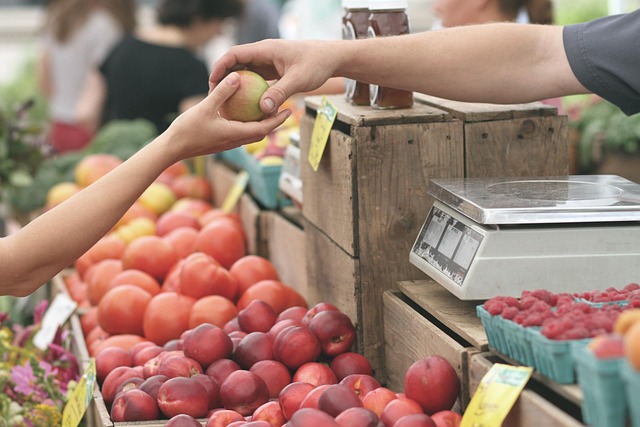Local food delivery services with a focus on meal preparation are transforming the way people access fresh, locally sourced produce, directly benefiting sustainable agriculture and rural communities. By encouraging seasonal eating, these platforms promote healthier lifestyles, reduce food waste, support regional farmers, and strengthen local economies, creating a more sustainable and connected food system.
Local food delivery services are revolutionizing the way we connect with our communities and support local farms. This article explores the profound impact of these services, highlighting benefits for both farmers and consumers. We delve into how meal preparation plays a crucial role in promoting sustainability within the local food delivery ecosystem. By understanding these dynamics, we can foster stronger agricultural communities and encourage healthier eating habits.
- Understanding the Impact of Local Food Delivery
- Benefits for Farmers and Communities
- Meal Prep: A Sustainable Approach to Food Delivery Services
Understanding the Impact of Local Food Delivery

Local food delivery services play a pivotal role in supporting local farms and promoting sustainable agricultural practices. By directly connecting farmers to consumers, these platforms ensure that fresh, locally sourced produce finds its way onto plates faster, reducing the carbon footprint associated with traditional food distribution methods. This not only minimizes environmental impact but also strengthens the economic ties between rural communities and urban centers.
Furthermore, local food delivery encourages meal preparation using seasonal ingredients, fostering a deeper connection between diners and their food. It promotes culinary creativity as chefs source fresh, diverse produce, leading to unique and innovative dishes. This trend contributes to a healthier lifestyle as it increases consumption of locally grown, often more nutritious, foods while reducing reliance on processed and imported goods.
Benefits for Farmers and Communities

Local food delivery services, especially those focused on meal preparation, offer a myriad of benefits for both farmers and communities. For local farmers, these platforms provide an opportunity to connect directly with consumers, bypassing traditional retail channels. This direct-to-consumer approach allows farmers to retain a larger share of the profit margin, fostering financial sustainability. Furthermore, it encourages a stronger relationship between farmers and their community, building trust and loyalty.
Within communities, local food delivery contributes to a vibrant and resilient food ecosystem. By sourcing ingredients directly from nearby farms, these services promote seasonal eating and support sustainable agricultural practices. This not only enhances the health and well-being of residents but also strengthens local economies by keeping dollars within the community. Moreover, it increases accessibility to fresh, locally grown produce and prepared meals for individuals with limited time or mobility.
Meal Prep: A Sustainable Approach to Food Delivery Services

In the realm of local food delivery, a growing trend is transforming the way we access fresh produce and support our regional farmers. This involves a strategic shift towards meal prep services that prioritize sustainability. By offering pre-prepared meals, local delivery platforms can reduce food waste significantly. When customers order their weekly meals in advance, it allows farmers to plan harvests more efficiently, ensuring that only what’s needed is produced, thereby minimizing surplus.
Meal preparation also extends the shelf life of perishable goods, reducing the carbon footprint associated with frequent deliveries. It’s a harmonious approach where local farms thrive, customers enjoy freshly prepared meals, and environmental impact is minimized. This sustainable model not only promotes local agriculture but also encourages a healthier relationship between consumers and their food sources.
Local food delivery services not only cater to our convenience but also play a significant role in supporting local farms and strengthening communities. By choosing meal prep options that prioritize fresh, locally sourced ingredients, we can contribute to a sustainable food system. This approach benefits both farmers and consumers, fostering a closer connection between producers and those who rely on their harvests. Incorporating meal preparation into local food delivery models is a promising strategy for enhancing dietary health and environmental sustainability.






